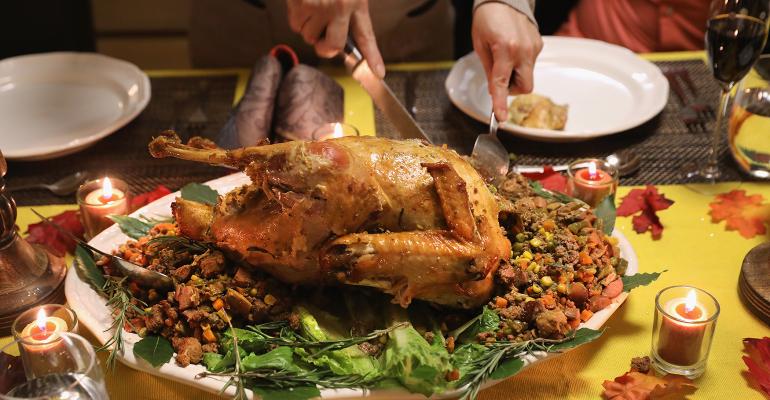Soon, many of us will gather around the Thanksgiving table with family and friends to indulge in an abundance of delicious traditional foods, give thanks for blessings and freedoms and kick off a winter holiday season that includes, for many of us, excessive gift-giving.
This year, Americans will spend close to $680 billion on holiday gifts for family and friends. Adults expect to spend an average of $1,189 each—even though research shows that 70 percent of these very same people would welcome less emphasis on gift-giving and spending.
Discretionary Holiday Spending
Here are some examples of “discretionary” holiday spending in the United States:
- More than $9 billion on Halloween, including $350 million on pet costumes,
- More than $3.2 billion on wrapping paper, and
- More than $9.5 billion on gifts that recipients consider unwanted or unneeded.
Holiday spending can seem especially excessive in the context of food insecurity:
- In 2016, 41 million Americans (including 13 million children) lived in food-insecure households. This means that one of eight of us (and one of six of our children) lacks consistent access to adequate food. Twenty-six percent of us earn too much to qualify for most federal nutrition assistance programs, but not enough to buy healthy foods.
- Forty percent of the food in the United States goes uneaten. Americans throw away more than 70 billion pounds of food per year. This number doesn’t include the huge amount of produce discarded by millions of backyard gardeners.
- Twenty-one percent of fresh water is used to grow food that is never eaten.
Economic Facts
Holiday spending should also be considered in the context of some startling economic facts:
- Fifty-seven percent of Americans don’t have the financial resources to cover a $500 unexpected expense; and
- Forty-five million people in the United States live below the federal poverty line ($11,892 for individuals and $23,836 for a family of four). An additional 97 million people live in households earning less than $47,700 for a family of four. When these numbers are combined, 48 percent of the nation’s population is classified as poor or low-income.
With these statistics in mind, consider the following two approaches as we gather around the Thanksgiving table to kick off the winter holiday season.
Carve Out Time
Carve out some time to spark a conversation with clients around these questions:
- What is our responsibility to help others in need among us?
- Can we donate more funds or volunteer more time in the coming year?
- Which causes are most meaningful to your client as a multi-generational family?
- How can your client serve as models of giving—for their children and grandchildren, or for their parents and grandparents?
- Since your client has been blessed with “enough,” is there more he can do for others who have less?
Carve Out Some Gifts
During the winter holiday season, families can choose to carve out a portion of the money designated for gifts to each other to be contributed to a common “family and friends” cause—to provide food and other basic necessities for the less-fortunate in our own communities.
Imagine the result if we, along with our clients, pledged to donate to a worthy charitable cause just 10 percent of what we would otherwise spend on holiday gifts, food and candy. Instead of being spent on discretionary gifts, billions of additional dollars would flow to nonprofit organizations for the benefit of others.
A pledge to give fewer material gifts to family, friends and co-workers and a bit more money and time to benefit those in need can bring families and other social groups together with a shared purpose. It can help children focus on giving as well as getting, spread the true spirit of the season and make our community a better place for everyone.
Isn’t that what the winter holidays are all about?
Bruce DeBoskey is a philanthropic strategist working across the U.S. with The DeBoskey Group to help families, businesses and foundations design and implement thoughtful philanthropic strategies and actionable plans.





